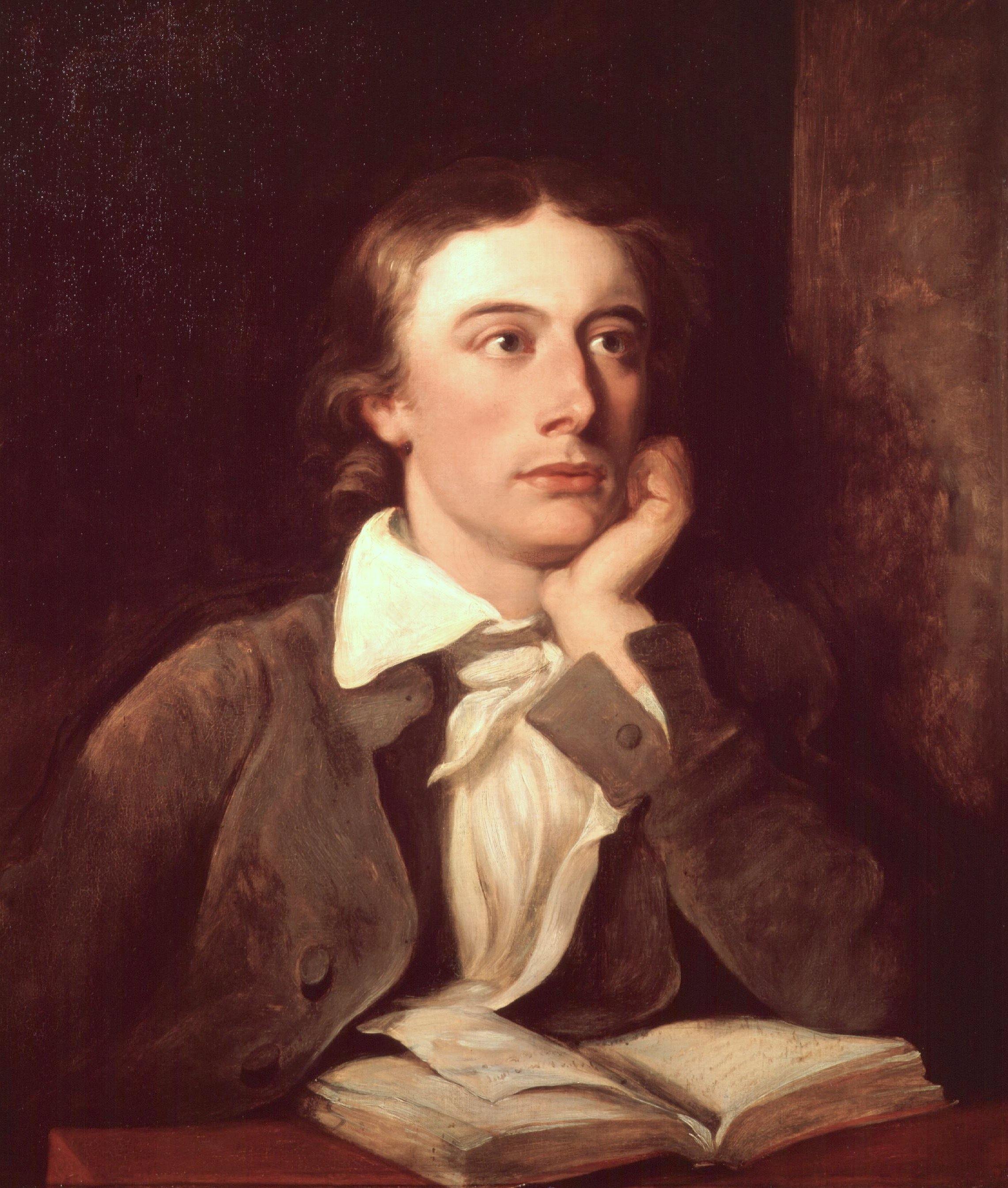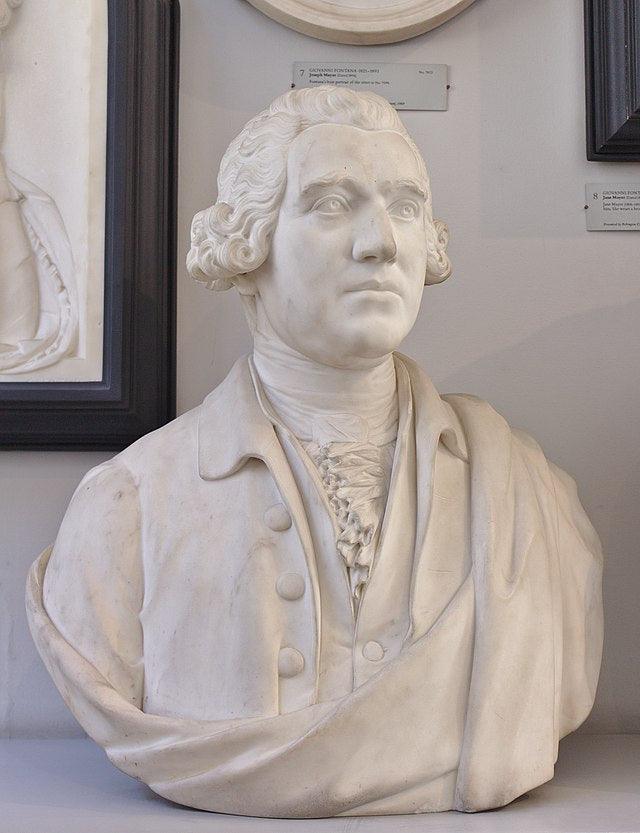The Madness of King George
 I had just left off writing and put on my things for walking to Alton, when Anna and her friend Harriot called in their way thither, so we went together. Their business was to provide mourning against the King's death, and my mother has had a bombasin bought for her. I am not sorry to be back again, for the young ladies had a great deal to do, and without much method in doing it.
I had just left off writing and put on my things for walking to Alton, when Anna and her friend Harriot called in their way thither, so we went together. Their business was to provide mourning against the King's death, and my mother has had a bombasin bought for her. I am not sorry to be back again, for the young ladies had a great deal to do, and without much method in doing it.
Jane Austen to Cassandra June 6, 1811
George William Frederick, (4 June 1738-29 January 1820), or King George III, is said by many to have gone mad, necessitating the Regency. But is this what really happened? Not according to recent research. Actually, the research isn't all that new, which is why it is inexcusable, to my thinking, to continue to characterize the King as merely having gone mad. In 1994, the movie, The Madness of King George tried to set the record straight...sort of. If I remember correctly, there was a little blurb at the end stating that the King actually suffered from Porphyria, a disease of the blood. One is inclined to think, however, that most people never read the blurb, though this is, in fact, the modern consensus of what the King's malady actually was. Porphyria.
So-what, we ask, is porphyria? Dictionaries will merely tell you that it is a metabolic disorder that affects the blood, secondarily. The main cause of symptoms, however, is not a result of how the blood is affected, but the accumulation of porphyrins in the body, which are toxic to tissue in high concentrations. Porphyrins, in turn, are actually precursors of heme-an essential part of the blood. In the disease state, porphyrins are not manufactured into heme as they should be, thereby leaving them to roam the system, which is the root of the trouble.
There are differing types of porphyria, which result in differing symptoms, but the King is thought to have had the blood type ("hepatic porphyria") which affects the nervous system, and results in abdominal pain, neuropathy, seizures and mental disturbances, including hallucinations, depression, anxiety and paranoia. (Little wonder that 19th century doctors thought he was nuts!) Interestingly, research has shown that the disease is hereditary and plagues the British royal family, stemming from Scottish monarchs James I and Mary I of Scotland.
Queen Anne of Great Britain, Queen Victoria's granddaughter Charlotte, and prince William of Gloucester (not to be confused with the current Prince William) almost certainly suffered from the illness (as well as Vincent Van Gogh). They suffered from what is called "Acute Intermittent Porphyria" which is certainly what the King had, as can be attested by his record of attacks; 1.1765 - a brief episode. 2.1788 -a longer episode. A Regency Bill is discussed. 3.1810-final,debilitating attack; the King is considered insane and Parliament meets to enact a Regency Bill.  The King never returned to his senses, or to power, and he was "locked away at Windsor Castle" where he also fell subject to the misinformed and sometime brutal treatment of his physicians, and to eventual neglect. Some of the mystifying behaviour he was said to display? For starters, he claimed to talk to angels. By itself, and by modern standards, we would likely not label him insane for such claims. (Questionable, eccentric, or odd, perhaps, but probably not mad.) But there's more. He spoke for hours on end without pause; and he once greeted an oak tree as though it were King Frederick William III of Prussia. Sadly, before he died, he prattled incessant nonsense for upwards of 50 hours, then lapsed into a coma and death. King George was a popular monarch in Britain for most of his reign. Here in the United States we tend to think badly of him, no doubt due to the fact that our forefathers saw fit to blame him entirely for all the injustices and wrongs we suffered as a British colony. (Parliament is not mentioned in the Declaration--only the King.)
The King never returned to his senses, or to power, and he was "locked away at Windsor Castle" where he also fell subject to the misinformed and sometime brutal treatment of his physicians, and to eventual neglect. Some of the mystifying behaviour he was said to display? For starters, he claimed to talk to angels. By itself, and by modern standards, we would likely not label him insane for such claims. (Questionable, eccentric, or odd, perhaps, but probably not mad.) But there's more. He spoke for hours on end without pause; and he once greeted an oak tree as though it were King Frederick William III of Prussia. Sadly, before he died, he prattled incessant nonsense for upwards of 50 hours, then lapsed into a coma and death. King George was a popular monarch in Britain for most of his reign. Here in the United States we tend to think badly of him, no doubt due to the fact that our forefathers saw fit to blame him entirely for all the injustices and wrongs we suffered as a British colony. (Parliament is not mentioned in the Declaration--only the King.)  However, he was a thoughtful, domestic family man; he loved to cultivate crops and build gardens and was dubbed "farmer George" because of it. He remained faithful to his wife for his lifetime, which was singular for a Hanoverian monarch and much admired by the British people. And he espoused thrift and economy; the very opposite of what his son, the Regent, later did. In short, I cannot help but to like this King. He was not able to foster a good relationship with his eldest son, and in fact, was disliked by his own father. But he was a King with a conscience, and, except for an occasional stubborn streak (which he showed in his refusal to give up the colonies for so long), he was a reasonable man, savvy enough in the political arena to retain the power of the throne during his reign, and had a sincere desire to do what was right. As to the misfortune of his having had porphyria, the best thing I can say is that, if not for the disease, we would not have had the Regency. That, indeed, would have been a great loss--at least to us Regency authors!
However, he was a thoughtful, domestic family man; he loved to cultivate crops and build gardens and was dubbed "farmer George" because of it. He remained faithful to his wife for his lifetime, which was singular for a Hanoverian monarch and much admired by the British people. And he espoused thrift and economy; the very opposite of what his son, the Regent, later did. In short, I cannot help but to like this King. He was not able to foster a good relationship with his eldest son, and in fact, was disliked by his own father. But he was a King with a conscience, and, except for an occasional stubborn streak (which he showed in his refusal to give up the colonies for so long), he was a reasonable man, savvy enough in the political arena to retain the power of the throne during his reign, and had a sincere desire to do what was right. As to the misfortune of his having had porphyria, the best thing I can say is that, if not for the disease, we would not have had the Regency. That, indeed, would have been a great loss--at least to us Regency authors!
Linore Rose Burkard is the author of Before the Season Ends, an Inspirational Regency Romance that readers love. She spent a great deal of time researching the period while writing her book. Coming soon from Harvest House Publishers: a new edition of Before the Season Ends, (December 1, 2008) followed by its sequel, The House in Grosvenor Square.( April, 2009) Visit her website to read more great articles and subscribe to her free monthly eZine, Upon My Word! Facts, Fashion and Figures of the Regency.
Enjoyed this article? If you don't want to miss a beat when it comes to Jane Austen, make sure you are signed up to the Jane Austen newsletter for exclusive updates and discounts from our Online Gift Shop.
Sources: WordNet ® 2.0, © 2003 Princeton University.



Leave a comment
This site is protected by hCaptcha and the hCaptcha Privacy Policy and Terms of Service apply.